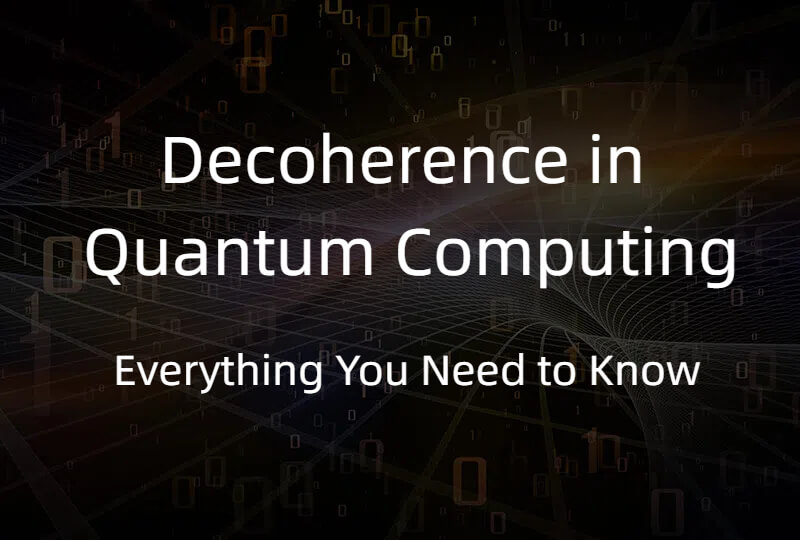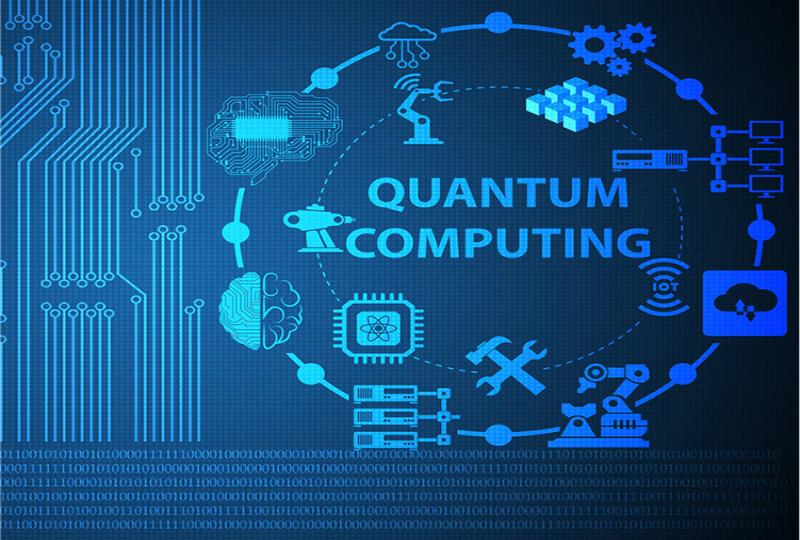Decoherence in Quantum Computing: Causes, Effects, Fixes
2025.04.23 · Blog
Understanding Quantum Decoherence: A Barrier to Scalable Quantum Computing
Quantum decoherence is one of the most critical challenges in the field of quantum computing. It refers to the process by which a quantum system loses its quantum properties as it interacts with its surrounding environment, effectively turning quantum information into classical information. This phenomenon undermines the potential of quantum computers, making it a major hurdle in building stable and reliable quantum computers.

What Is Quantum Decoherence?
In a quantum computer, information is stored in quantum bits or qubits. These qubits can exist in a superposition of states—meaning they can represent both 0 and 1 simultaneously.
However, this superposition is extremely fragile. When a qubit interacts with its environment (even slightly), it begins to "decohere," or loses its quantum behavior. As a result, it starts behaving like a classical bit, thereby losing the computational advantages that quantum superposition and entanglement offer.
Decoherence is caused by various factors such as thermal fluctuations, electromagnetic radiation, and imperfect isolation from the environment. It leads to the breakdown of quantum coherence, which is essential for performing complex quantum computations.
Curious to dive deeper? We've written a full breakdown here: Quantum Decoherence: Everything You Need to Know.
How Decoherence Threatens Quantum Computing Performance
Quantum decoherence is one of the most significant challenges facing quantum computing today.
1. Loss of Quantum Information
Qubits rely on quantum superposition and entanglement to perform computations that classical bits cannot. Decoherence destroys these delicate states by entangling them with the environment, turning a quantum state into a classical one. This loss of coherence translates directly into loss of quantum information, making the output of a quantum computation unreliable or meaningless.
2. Limits on Computation Time and Fidelity
Every quantum system has a characteristic coherence time—the time over which quantum information can be reliably maintained. The shorter the coherence time, the more likely errors will occur during computations. For quantum computers to outperform classical machines, they must maintain coherence long enough to complete calculations and execute quantum algorithms.
Once decoherence begins, the system's state starts to degrade, leading to loss of fidelity in computations.
This creates a race against time: quantum algorithms must complete before decoherence sets in, often in microseconds to milliseconds. This is especially crucial for algorithms that offer exponential speedups, such as Shor's algorithm for factoring or Grover's search algorithm. If decoherence sets in too early, the quantum advantage is lost.
The larger the system or the more complex the computation, the harder it becomes to stay within this fragile window.
Strategies to Mitigate Quantum Decoherence
1. Quantum Error Correction: To combat decoherence, researchers have developed quantum error correction codes (QECC). These protocols detect and correct errors introduced by decoherence without measuring quantum information directly.
QECCs work by encoding logical qubits into highly entangled states of multiple physical qubits, allowing the system to recover from certain types of errors.
However, error correction introduces significant overhead, often requiring dozens or even hundreds of physical qubits to represent a single logical qubit.
Different qubit technologies offer varying degrees of resilience to decoherence. For example:
-
Superconducting qubits have fast gate speeds but are sensitive to noise.
-
Trapped ion qubits have longer coherence times but slower operations.
-
Topological qubits (still under research) aim to be inherently resistant to decoherence.
2. Isolation: Quantum processors are kept in vacuum chambers and shielded from electromagnetic interference.
3. Cryogenic Cooling: Many quantum systems, such as superconducting qubits, are cooled to millikelvin temperatures to reduce thermal noise.
4. Material Engineering: Designing cleaner substrates and interfaces to reduce noise and improve coherence times.
5. Decoherence-Free Subspaces: Encoding information in special configurations that are naturally immune to certain noise sources.
Together, these methods aim to extend coherence times, reduce error rates, and ultimately bring practical quantum computing closer to reality.
Decoherence and the Future of Quantum Computers
Overcoming quantum decoherence is a critical step toward realizing the promise of practical, large-scale quantum computers. Researchers worldwide are exploring new materials, better isolation techniques, and more robust architectures to extend coherence times.
Top quantum computing companies like Google, IBM, Microsoft, and SpinQ are all investing heavily in reducing the effects of decoherence as they scale up their quantum hardware.
As quantum technologies mature, better management of decoherence will unlock new possibilities in areas like cryptography, optimization, material science, and drug discovery.
FAQs
1. What Is Quantum Decoherence in Simple Terms?
Imagine you're spinning a coin in the air — while it's spinning, it's kind of both heads and tails at the same time. This is like a quantum particle being in multiple states at once.
But as soon as the coin lands — it's either heads or tails. That's what decoherence does in the quantum world. It's like the environment "touches" the coin mid-air and forces it to land early, making it choose a side.
So, quantum decoherence is what happens when a quantum system interacts with the outside world, and as a result, it loses its ability to stay in a “both-at-once” state.
2. Can We Fully Eliminate Decoherence in Quantum Computers?
No — at least not with today's technology. Decoherence is a natural and unavoidable result of a quantum system interacting with its environment. However, scientists are developing techniques to delay or reduce its effects using isolation, cooling, and quantum error correction.
3. Why Are Photonic Quantum Systems More Resistant to Decoherence?
Photons don't interact much with their surroundings, making them naturally less prone to decoherence. They can travel long distances with minimal noise, which is why photonic systems are ideal for quantum communication and promising for scalable quantum computing.
Featured Content






